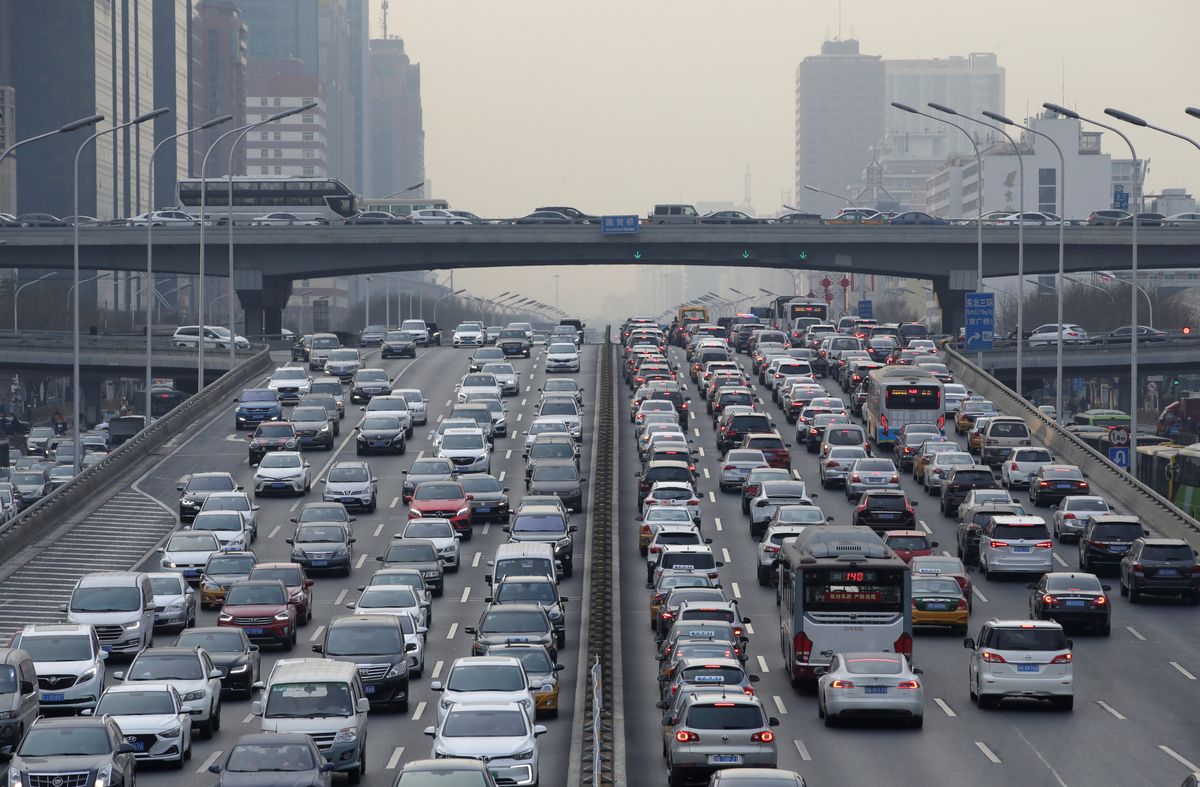Tesla sparks a price war in China's auto market
Tesla has been making big moves in the Chinese electric vehicle (EV) market.

A few minutes every morning is all you need.
Stay up to date on the world's Headlines and Human Stories. It's fun, it's factual, it's fluff-free.
The backstory: Tesla has been making big moves in the Chinese electric vehicle (EV) market. Last October, Tesla CEO Elon Musk decided to cut prices on China's vehicles. This move aimed to help the company keep up with the competition and maintain demand. China is an important market for Tesla, accounting for a whopping 30-40% of its profits, according to Morgan Stanley.
More recently: In 2022, China's retail sales of new energy vehicles, including fully electric and plug-in hybrids, nearly doubled to over US$5 million. Local giant BYD made up around 30% of those sales.
But Tesla's price war has hit BYD hard, causing the company's value to drop by a whopping US$18 billion in February. So to stay competitive, BYD introduced its own discounts earlier this month.
The development: Now, Chinese automakers are going head-to-head with Tesla over pricing to boost sales. But the China Association of Automobile Manufacturers wasn't too sure about this strategy for the industry's sluggish sales and inventory buildup. So instead, it suggested that going back to normal operations could be a more sustainable way to boost growth.
Meanwhile, the Chinese state media called out local governments for providing subsidies for locally-made vehicles and used Hubei province as an example, saying it was improper. The province's state-backed carmaker, Dongfeng Motor Group, has lowered the prices of one of its models by about 40%, up to 90,000 yuan (US$13,000).
Key comments:
"Tesla's price cuts started a broader round of industry price reductions," said Morgan Stanley auto analyst Adam Jonas in a note to clients on March 10. "Unlike earlier cuts that triggered a strong demand-response, this round has not seen follow-through as consumers wait for further cuts."
"Tesla created havoc for rest of the market," said Jochen Siebert, managing director of JSC Automotive, a consultancy with offices in Shanghai and Stuttgart.
"We need to go through this price war at the beginning of the year, and then we expect the industry to go through some profound fundamental consolidation," said Steven Feng, Nio Chief Financial Officer, to Bloomberg. "It's almost consensus that China now has too many automakers."
"The price cuts on EVs make them even more attractive compared to gasoline cars, further squeezing traditional carmakers," said Yang Jing, director of China Corporate Research at Fitch Ratings,. in an interview.
"It's going to stay brutal through mid-2024," said Tu Le, managing director of consultancy Sino Auto Insights. "It's really existential for some of the weaker players."




Comments ()